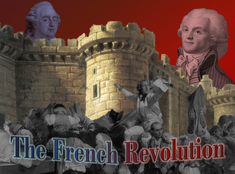
The French Revolution Dictated 19th-Century Europe
Blog by
First published: Monday February 26th, 2024
Report this blog
First published: Monday February 26th, 2024
Report this blog
+3
Quick Links
This blog shall provide an academic overview of the French Revolution's extensive influence in the course of European events during the nineteenth century.
It is chiefly intended for college students due to the intricate information provided and the high level of vocabulary. For ease of learning, I have provided some hyperlinks to Encyclopedia Britannica or other relevant websites for certain specific terms or events not covered in detail in this article.
It is chiefly intended for college students due to the intricate information provided and the high level of vocabulary. For ease of learning, I have provided some hyperlinks to Encyclopedia Britannica or other relevant websites for certain specific terms or events not covered in detail in this article.
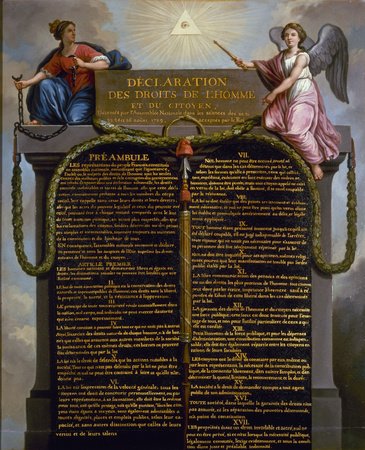
Artistic portrayal of the Declaration of the Rights of Man and of the Citizen (1789): the charter of the fundamental principles of the French Revolution
Overview
On 14th July 1789, the first populist revolt in Europe – motivated purely by the people’s demands for better living conditions and more liberties – commenced; this one day would shape the next 125 years of European history. Besides being the epicentre of liberal reform in France, its ideals were dispersed throughout the continent, sowing the seeds of reform throughout other nations, whose previously unchallenged traditions and leaders would be transmuted.
Napoleon and the Concert of Europe
Napoleon Bonaparte’s rise to power at the revolution’s closing stage led to significant domestic reforms and continental conflict. Due to the then administration’s – the Directory – unpopularity, he launched a coup d’état (the Coup of 18 Brumaire) on 9th November, establishing him as First Consul; the subsequent Constitution of the Year VIII granted Napoleon dictatorial powers.
Throughout his rule, he oversaw economic recovery by establishing the central Bank of France in 1800, recuperated state relations with the Roman Catholic Church with the issuing of the Concordat of 1801, reformed the legal system by chartering the Napoleonic Code (1804), overhauled the education system by instituting the University of France and restructuring primary and secondary schools, and most prominently, establishing the First French Empire dominating continental Europe. To do so, he embarked on a series of conflicts – the Napoleonic Wars – from 1803 to 1815; whilst ultimately dissolving the Empire, they disseminated the Revolutionary ideals throughout Europe, popularised the corps system for organising military units, hastened the First Industrial Revolution in the United Kingdom, and fostered the creation of the Congress System (the Concert of Europe).
The latter consequence concerned the domination of the five superpowers: the United Kingdom, France, Prussia, Austria, and Russia, in dictating Europe’s affairs – to preserve the balance of power and suppress revolts (and liberalism, in general) to ensure peace and stability, preventing a repeat of the French Revolution and Napoleonic Wars. Whilst weakened by the emergence of some wars – such as the Crimean and Franco-German Wars – the Concert of Europe often resolved nineteenth-century conflicts, as seen with the London Conference (1830) granting Belgium independence, the Congress of Paris (1856) determining the peace terms for the Crimean War, and the Congress of Berlin (1878) tackling the Eastern Question.
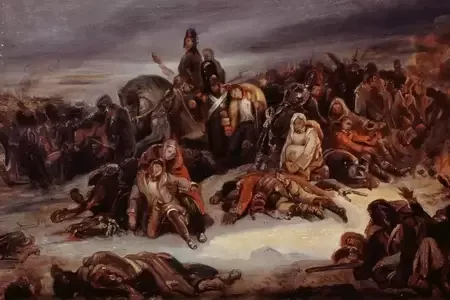
Napoleon's retreat from Russia (1812): the main turning point of the Napoleonic Wars - signalling the First French Empire's decline
Nationalist Movements
Nationalism – the collectivist movement uniting people of a particular culture (especially language) under one nation and synchronising government function with bolstering the nation – arose from the French Revolution and morphed nineteenth-century European history. As delineated in Article III of the Declaration of the Rights of Man and of the Citizen – “The principle of any sovereignty resides essentially in the Nation” – the ‘nation’ refers to the country’s citizens (in this case, France), which the government was to be responsible for safeguarding. Disseminating through the Napoleonic Wars – such as with the agglomeration of most German states within the Holy Roman Empire into one (Confederation of the Rhine) – European folk sought to form new nations based on a common identity, ethnicity, language or religion.
1821 saw the first display of nationalistic sentiment, as Greeks revolted against the Ottoman Empire and fully gained independence in 1830. Greece’s success in pursuing nationalism encouraged ethnic Germans to demand the creation of a united Germany (same for Italians), and ethnic Austrians, Hungarians, Croats, Slovenes, et cetera to splinter from the Austrian Empire. Eventually, Italian and German Unification occurred in 1871, and Austria-Hungary was dissolved in 1919, fostering the creation of Austria, Hungary, Czechoslovakia and Yugoslavia. Furthermore, the Great Eastern Crisis – a series of Balkan uprisings within the Ottoman Empire – stimulated the independence of Romania (1877), Bulgaria (1878, partially) Serbia (1878, fully), and later other nations during the Balkan Wars of 1912-13. These independence movements stemmed from the proliferation of nationalism during the French Revolution.
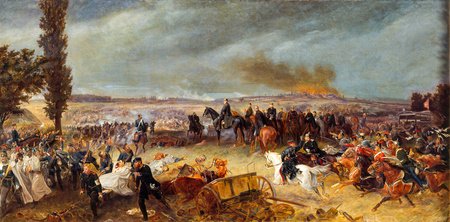
The Battle of Königgrätz (1866) of the Austro-Prussian War: one of the wars culminating in the unification of Germany - nationalism influenced the formation of new nations in the nineteenth and twentieth centuries
Liberalism and the 1848 Revolutions
The French Revolution’s primary accomplishment – promulgating and mandating liberal principles to safeguard every citizen’s rights – was definitively realised with the 1848 Revolutions. Shortly after the National Constituent Assembly’s formation, the August Decrees – issued in August 1789 – rescinded the feudal system and any social and financial privileges. They preceded the Declaration of the Rights of Man and of the Citizen – a keystone document of the Enlightenment liberal ideals, guaranteeing “liberty, property, safety and resistance against oppression” to every ‘man’ (Article II) – deemed equal and free agents. Whilst mandated in the Constitution of 1791, these liberal ideals would not be enforced due to the autocratic regimes of Maximilien Robespierre, Napoleon I, Louis XVIII, Charles X, and finally, Louis Philippe.
The Orléanist regime led by Louis Philippe – only latently populist – was overthrown in the French Revolution of 1848, with citizens demanding workers’ rights, price stability, and, above all, a democratic government. In fact, the 1848 Revolutions spread throughout Europe, with the prevalent aims being an acknowledgement of popular sovereignty, nationalism, constitutionalism, and socialism (more broadly, protection of workers) – ideas emanating from the French Revolution of 1789. Although the Springtime of the Peoples failed, the French Revolution of 1848 partially succeeded, with the first presidential election with universal male suffrage held that year, as well as slavery being abolished. The Third and Fourth Republics would enact significant reforms to materialise the liberalism envisioned by the French Revolution (1789), such as eliminating discrimination between races and sexes.
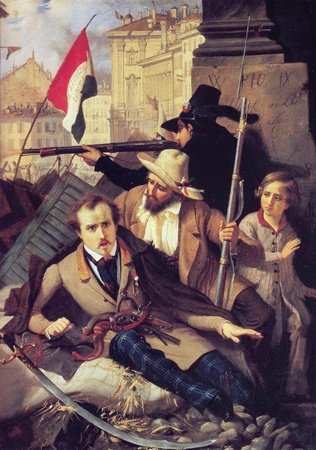
The Five Days of Milan during the Italian theatre of the 1848 Revolutions: the liberal ideas originally promulgated in the French Revolution of 1789 had spread throughout Europe, instigating other revolts
Conclusion
The French Revolution’s commitment to drafting a constitution mandating human rights, fostering nationalism throughout Europe and giving rise to Napoleon Bonaparte shaped nineteenth-century European history. Most liberal revolts and independence/unification movements that followed (indeed the framework of the entire century) – from the Springtime of the Peoples to the Risorgimento – were directly influenced by the Revolution’s quests.
Further Reading
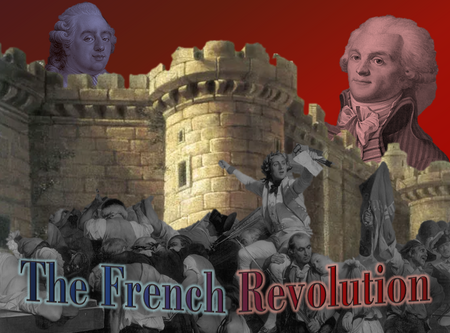
This blog is part of a set concerning the FRENCH REVOLUTION. The rest can be accessed from my History series, listed consecutively as the first category of blogs.

Nice blog!